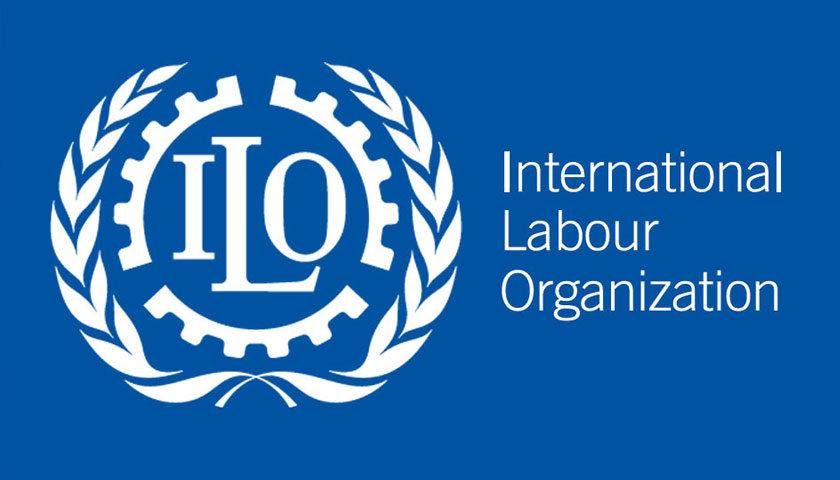The Investor Agenda launched today in San Francisco will support investors in accelerating and scaling-up the actions that are critical to tackling climate change and achieving the goals of the Paris Agreement. Its launch also demonstrates the significant momentum already evident, with 392 investors with US $32 trillion in assets collectively under management, using The Investor Agenda to highlight climate action they are already taking and making new commitments1.
Announced as part of PRI in Person and the Global Climate Action Summit, The Investor Agenda provides a way for investors to directly report actions they are taking, and scale-up their commitment to act, across four key focus areas: Investment, Corporate Engagement, Investor Disclosure, and Policy Advocacy.
Capturing new data, the Investor Agenda seeks over time to reflect the full breadth and scale of global investor-led action on climate change. Bringing together and helping drive participation in a broad range of global investor initiatives, it also supports investors in taking greater action. This offers benefit to investors, in being able to better manage climate risks and capture low-carbon opportunities as a result, while also scaling-up the investor led contribution to achieving the goals of the Paris Agreement. Showcasing investor leadership on climate change will also be used as a way to inspire bolder commitment from investors and their peers, raising the bar and building on existing momentum.
“Investors are showing great leadership to promote climate action in multiple fronts. Their efforts to meet the shortfall in the financial resources required to deliver the Paris Agreement goals, and further building on engagement with high-emitting sectors are a valuable contribution,” said Patricia Espinosa, Executive Secretary of the United Nations Framework Convention on Climate Change (UNFCCC) in welcoming the launch. “Yet we believe many more opportunities exist. The Investor Agenda offers a clear path to scale-up investor action, which is essential to meet the needs in every region of the world to address climate change. It gives investors multiple opportunities to continue to demonstrate their willingness to become part of the transformation that will lead us to a more cleaner, greener, sustainable future for all.”
The potential of the Investor Agenda to deliver change is strengthened by the collaboration and global reach of its founding partner organizations. Through momentum captured by The Investor Agenda to date, institutional investors, asset owners and managers and pension funds are making significant impact across the focus areas.
Investment highlights 120 investors pursuing new and existing investments in low carbon and climate resilient portfolios, funds, strategies or assets such as renewable energy and energy efficiency projects; phasing out investments in coal; and integrating climate change into portfolio analysis and decision-making.
Policy Advocacy highlights 345 institutional investors with US $30 trillion in assets who are urging governments to implement the Paris Agreement and enhance their climate policy ambitions by 2020. The full policy statement includes calls for bolder action from governments including phase out of thermal coal power worldwide, greater investment in the low-carbon transition and improving climate-related financial disclosures.
Corporate Engagement highlights 650 investors with US $87 trillion in assets backing the CDP’s environmental disclosure request; and 296 investors from 29 countries with US $31 trillion in assets that are signatories to Climate Action 100+. This investor-led initiative engages the world’s largest corporate greenhouse-gas emitters and asks them to curb emissions to achieve the goals of the Paris Agreement.
Investor Disclosure highlights the more than 60 investors committed to reporting in line with the Task Force on Climate-related Financial Disclosure (TCFD) recommendations. This is a sizeable portion of total finance sector signatories reported by the TCFD, but also illustrates room for growth in expected submissions of activity, as more investors participate in The Investor Agenda.
392 investors specifically reported new information or have committed to policy advocacy activity under the Investor Agenda. Other examples above illustrate broader participation in related initiatives2. Examples of specific investor actions in line with the focus areas above are highlighted in The Investor Agenda Fact Sheet.
The total number of investors taking action in line with The Investor Agenda is expected to grow over coming months and years. Submissions will remain open for investors through The Investor Agenda website. Growing involvement of investors, will serve to increasingly reflect the full scale of momentum in global investor action on climate change.
Developed by seven founding partner organizations, and supported by 10 supporting partner organizations, The Investor Agenda brings together the collective reach and influence of key investor networks in Asia, Australia, Europe, and North America, and relevant supporting partner organizations. The Investor Agenda has already received strong support from influential investors and climate figures alike.
“Progress is on the agenda of the investment community, and today’s announcement is hugely important, but this is just the beginning of an extraordinary, economy-wide transformation to low-carbon that we must achieve within a generation,” said Christiana Figueres, convener of Mission 2020. “We have an acute need for speed. The shift in investment – away from high carbon towards low carbon – needs to exponentially increase, and investors can now focus on scaling up financial flows to enable greater national ambition by 2020.”
“Investors are in a unique position to mitigate the threats of climate change,” adds Betty T. Yee, Controller of the state of California. Yee also serves on the boards of California Public Employees’ Retirement System (CalPERS), and California State Teachers’ Retirement System (CalSTRS), and the sustainability nonprofit organization Ceres. “With trillions of dollars under management globally, we can demand accountability from the largest corporate greenhouse gas emitters and hold governments responsible for the impact of their decisions. The Investor Agenda is producing real progress as we risk irreversible damages of global warming.”
“The emergence of The Investor Agenda reflects the mounting urgency among the global investor community to address the greatest challenge of our time through measurable and transparent actions,” said Peter Damgaard Jensen, CEO of Danish pension fund PKA with over $42 billion in assets under management, and Chair of the Institutional Investors Group on Climate Change. “By increasing sustainable, low-carbon investments, we can put the world on the right path to achieving goals set out by the Paris Agreement, effectively protecting the future of the economy and planet.”
“As investors working on behalf of the world’s largest institutional asset owners seeking strong risk adjusted returns, it’s our responsibility to preserve capital. Climate change will undeniably affect our ability to do this,” said Christopher Conkey, CEO and Global CIO (Public Markets), Manulife Asset Management. “The Investor Agenda provides a powerful framework for us to collaborate with our peers to reduce the absolute risk in the capital markets from climate change. As founding members of the Climate Action 100+ and the UNEP FI pilot project on TCFD scenario analysis for portfolios, we look forward to establishing a new baseline of investor best practice on this issue.”
“The Investor Agenda demonstrates the work of global investors to manage climate risk in existing portfolios and through new investment opportunities” said Kristian Fok, Chief Investment Officer, Cbus. “As Australia’s leading pension fund for the built environment and a founding member of Climate Action 100+, Cbus understands the importance of a just transition. We’re investing in a better future through green buildings, renewable energy opportunities, and are committed to Science-Based Targets and the TCFD recommendations.”



